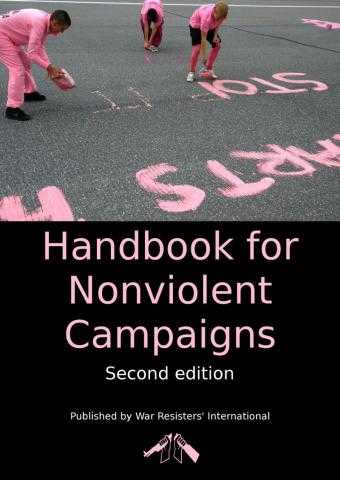Sian Jones
Violence...
Five months after Seattle, and people are thinking things have changed... two editors and a dog set off to London's May Day 2000... Guerilla Gardening... part of a global day of action against capitalism. It was a long time since I'd been on an action where I knew that there would be violence, not just from the police but an anticipated and declared tactic of protest ... but a tactic for what?
Profile of a political prisoner
Jigme Gyatso is a monk from Gaden Monastery in Chinese-occupied Tibet. He was born in Bhartha village in Gansu Province in 1962. Although he was his parent's only child he decided to become a monk. During the mid-1980's he briefly visited India to receive a religious initiation. Upon his return to Tibet he joined the Gaden Monastery where he became involved in pro-independence activities.
Overall situation
The thrust of the peace process that resulted in the 1993 Oslo agreement was to bring the Palestinians and Israelis to an interim negotiated settlement. It set out steps that focused on building mutual trust between the two peoples. After the signing of the Oslo agreement, which included the establishment of the Palestinian National Authority (PNA), there was a gradual implementation of the terms of the agreement and the beginning of Israeli withdrawal from the Palestinian territories.
Sumitra, Champa, Samprada, Sushama, Kalabati, Salma are some of the tribal women living in remote corners in the state of Orissa in India who we have met during our recent visit to their villages. The women's organization with which I work, Swadhina, has been encouraging and promoting women's groups in these villages for the past five years. These women live in distant villages located in hilly forest regions. Their lives are integrally linked to the forest, which has been their source of food, fodder and wood for fuel.
It was in Chile, as an international observer of the 1988 plebiscite that voted Augusto Pinochet out of office, that I first saw the dramatic transformative power of nonviolence. I saw it the second time in Seattle during the protests of the meeting of the World Trade Organization.
Introduction
Self-Employed Women's Union (SEWU) is an independent trade union established in 1993 to represent the interests of self-employed and survivalist women engaged in the informal sector of the South African economy. SEWU is not affiliated with COSATU (South Africa's main labor union congress) because its members are women from different political parties.
Historical Roots of the MST
Brazil is one of the most unequal societies on the planet--1% of landowners own 44% of all Brazilian land (an area larger than the continental United States). Understanding the history and social implications of that inequality is essential background for understanding the situation of the landless in Brazil today.
Kosovo was not an obvious place for a nonviolent struggle. The Kosovo Albanian value system is based on a concept of honour closely linked with weaponry: take away the weapon, goes one saying, and you take away honour--a man's most important possession is his gun. The history is not one of unity but of clan rivalries, not organized collective resistance, but banditry and bloody rebellion.
The Gays and Lesbians of Zimbabwe (GALZ) was founded in 1990 to provide support services to lesbian and gay communities in Zimbabwe. Frustrated by the Zimbabwe government's attempts to silence the organization and prevent it from reaching out to potential members, GALZ was forced to transform itself into a human rights lobby group and to adopt a highly political profile.
Empowerment in an adult-centric and patriarchal society
Since the decade of the 1990's, there has been growing concern in Colombia about the youth (ages 12 through 26) of society, particularly in Medellin. This concern developed amidst the country's profound social and political crisis, because young people have been the principal protagonists--as agressors and victims--in a dynamic of war, the narcotraffic war.
Mahatma Gandhi's concept of Gram Swarajya (village self-rule) aimed to create egalitarian, self-sustaining communities within an egalitarian and nonviolent society. To work toward that goal, a group of people established the Dasholi Gram Swarajya Mandal (Dasholi Village Self-Rule Organization, or DGSM) at Gopeshwar, India, in 1964.
Jørgen Johansen
The best-prepared and most successful large-scale civil disobedience action in Scandinavian history never took place.
In 1996 the Norwegian Parliament decided to build two large power stations to produce electricity from natural gas. With a company ready to build and a decision made by the authorities, it seemed almost impossible to prevent it. Natural gas had for years been presented as "clean" and "friendly to nature." To promote the project the company behind the plans took the name "Naturkraft" (The Power of Nature). Who could protest "The Power of Nature?"
